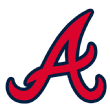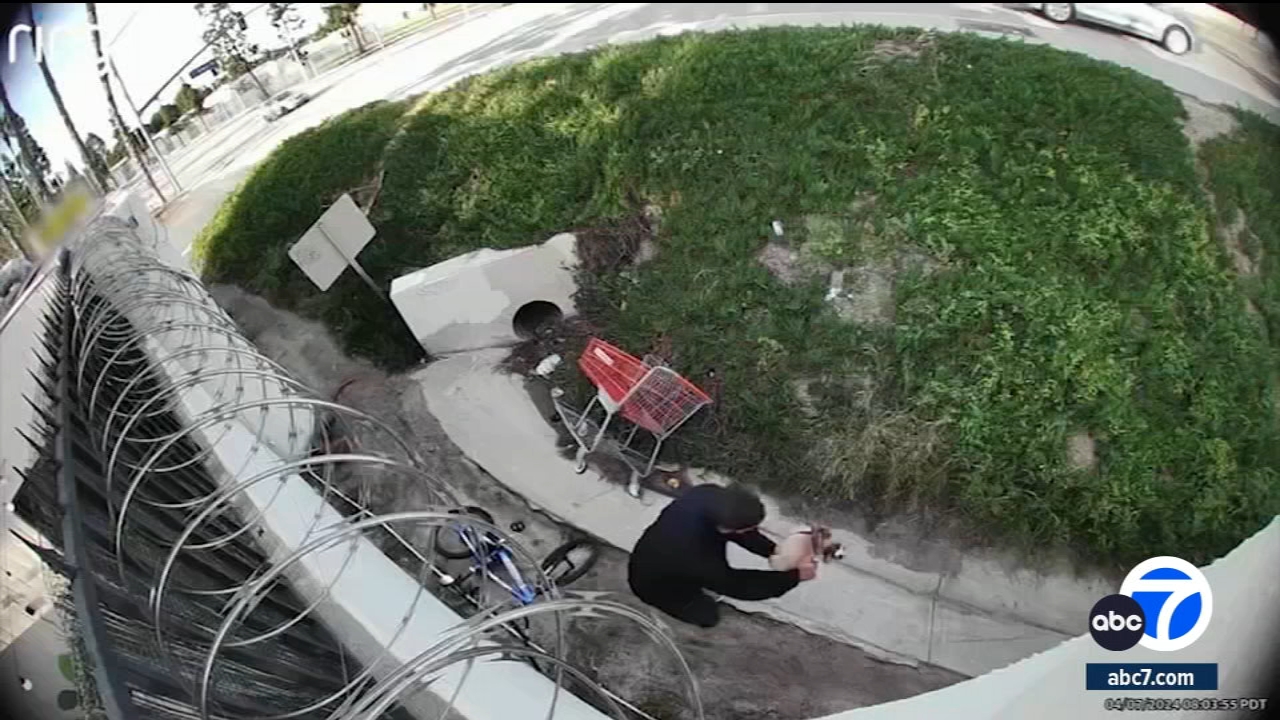MLB playoffs 2020: Braves-Dodgers NLCS pits MLB's two best offenses and much more

If you like offense, this is the series for you. The Los Angeles Dodgers boast a deep and powerful lineup that led baseball in runs scored, while the Atlanta Braves scored just one fewer time than L.A. this season.
There are few teams in baseball that match the Dodgers group highlighted by Mookie Betts and Cody Bellinger in terms of offensive star power, but Atlanta's combination of Freddie Freeman and Ronald Acuna Jr. sure can.
This National League Championship Series isn't just about the players capable of providing offensive fireworks, though. Mound matchups between L.A.'s Clayton Kershaw and Walker Buehler and Atlanta's young duo of Max Fried and rookie Ian Anderson should provide plenty of intrigue.
Here's how both teams got here, odds to advance, the case for both teams to win the series and more.
The odds say ...
The Dodgers have a73.3% chance of winning the series.
How they got here
Braves:Led by their high-scoring offense, the Braves cruised to the NL East crown with a 35-25 record that netted them the No. 2 seed in the National League. With Freeman and Acunaleading the way, Atlanta finished second in the majors in runs scored with just one fewer than the MLB-best Dodgers.
Wild-card series:Defeated Cincinnati 2-0
NL Division Series: Defeated Miami 3-0
Dodgers: Once L.A. acquired Betts from the Boston Red Sox in February, the Dodgers became the odds-on World Series favorite. They did not disappoint, racing to a 43-17 record and posting a plus-136 run differential, both by far the best in baseball.
Wild-card series:Defeated Milwaukee 2-0
NL Division Series: Defeated San Diego 3-0
Series schedule
at Arlington, Texas
Game 1: Monday, Oct. 12, Fox or FS1
Game 2: Tuesday, Oct. 13, Fox or FS1
Game 3: Wednesday, Oct. 14, Fox or FS1
Game 4: Thursday, Oct. 15, Fox or FS1
Game 5: Friday, Oct. 16, Fox or FS1 (if necessary)
Game 6: Saturday, Oct. 17, Fox or FS1 (if necessary)
Game 7: Sunday, Oct. 18, Fox or FS1 (if necessary)
Three reasons the Braves will win the series
1. Diversity of offensive attack
Pick a metric. Any metric. Well, a bottom-line metric, anyway. Let's use wRC+ from FanGraphs to measure contextualized team offense. The Dodgers -- no surprise -- are tied for first with the Mets at 122. Right behind them, at 121, are the Braves. Los Angeles scored exactly one more run (349-348) than Atlanta did during the regular season. From an overall standpoint, these were two high-powered offenses of virtually equal quality.
Now let's consider how the teams did their scoring. Both teams are premier power clubs, but the Dodgers are at a different level. The teams ranked 1-2 in runs per game off homers, with L.A. coming in at 2.98 and Atlanta at 2.80, and the Dodgers' team home run percentage (5.1% of plate appearances) was an MLB record. But the Braves scored more runs per game by non-homer means (3.00 to 2.83).
To sum up: These are the best two power-based offenses in the majors. L.A.'s homerific ways are more prolific, but not by much. On top of that, Atlanta has the more versatile attack when it comes to scoring without the long ball. With the games all taking place at (apparently) homer-resistant Globe Life Field, this could inch things in the Braves' direction.
2. Front of the rotation
How could a team with two frontline starters who entered the season with exactly 19 career wins between them have any kind of an edge against a team that can roll out Walker Buehler and Clayton Kershaw at the beginning of a series? Maybe you wouldn't declare an edge for Max Fried and Ian Anderson in however those matchups shake out, but based on recent performance, it's a good debate.
Anderson's track record is short but it's also overwhelming, and his changeup has quickly emerged as one of baseball's most devastating pitches. Since he debuted on Aug. 26, he's 5-2 with a 1.43 ERA, including his two scoreless postseason outings. During that same time frame, Kershaw is 5-1, 2.05; Buehler is 0-0, 2.29 in just 19 innings; and Fried is 3-0 with a 3.55. It's very close.
But here's another thing about this top two of Atlanta: They are extremely difficult to homer off of. Anderson has thrown 764 pitches as a big leaguer. Only one has left the yard. Among pitchers who threw at least 30 regular-season innings (there were 158 of them), Anderson's 0.7% homer rate led the majors. Fried (0.9%) ranked sixth. That doesn't ensure anything against a lineup as good and as deep as that of the Dodgers. But it sure doesn't hurt.
3. Back of the bullpen
Both teams have effective, deep, versatile and experienced bullpens. But for the first time in a very long time, the Dodgers don't necessarily know who their ninth-inning guy should be. If there has been one negative aspect of the Dodgers' early postseason run, it's been the inability of Kenley Jansen to halt the peppering of closer-related questions in Dave Roberts' Zoom-based interviews.
The Braves, despite having a plethora of former saves guys such asMark Melancon, Chris Martin, Shane Greene, A.J. Minter and Will Smith, have a tightly knit bullpen in which everyone slots into their own appropriately leveraged role. Melancon might not be peak-level Mariano Rivera, but he has held down the ninth-inning job and allowed Atlanta manager Brian Snitker to establish an effective bullpen hierarchy. You know, like the one the Dodgers have had for so long that you kind of take it for granted.
Three reasons the Dodgers will win the series
1. Depth and positional versatility
For all their star power, depth and versatility are every bit as much a part of the Dodgers' prolonged run of success in recent years. As baseball has continued to evolve in the direction of hyper-specialization, the Dodgers have been the indestructible amoeba that can change shape and form and thrive in any environment. Ordinarily, the postseason format undercuts these organizational strengths. But in a possible seven-games-in-seven days NLCS, this is the time for the entire Dodgers roster to shine.
The Braves have a well-balanced pitching staff, both from a platoon standpoint and in terms of complementary styles. However, the Dodgers not only have more weapons than they can actually fit onto a playoff roster -- they can customize their mix to whatever roster strategy you might counter with. In terms of position players, they do this with a remarkably versatile group that allows them to maximize offense without sacrificing defense.
They have a star right fielder in Mookie Betts who could plausibly start at second base. They have a star center fielder in Cody Bellinger who has spent much of his young career as a Gold Glove-caliber first baseman. And that's just the headliners. Depth is often an overexaggerated factor when it comes to previewing playoff matchups. This time, it's huge. The Dodgers have more depth than every team, but particularly more than the Braves, who basically use a set everyday lineup.
2. Team defense
To be clear, Globe Life Field doesn't play like the Astrodome, circa 1979. The Dodgers and Padres did plenty of damage with the long ball during their LDS showdown in Arlington. Still, by 2020 standards, the GLF looks like a tough home run ballpark. And it's not just the venue that might suppress the long ball, at least to some degree. It's a strength of both pitching staffs to keep the ball in the yard. The Dodgers led the majors by allowing just 1.55 runs per game via the home run ball; the Braves were fifth at 1.77.
However, there was a big disparity when it came to allowing runs by other means. The Dodgers allowed 2.00 runs per game by non-home run means, ranking fourth in the majors. On the other hand, the Braves ranked just 22nd in this esoteric category, allowing 3.03 non-homer runs per contest.
Not all of this can be chalked up to fielding, but the metrics suggest a huge disparity between these teams in that area. According to defensive runs saved, the Dodgers ranked second at plus-29, while the Braves were 21st at minus-8. The teams were close in runs saved via shifting, so the difference was all about the players. L.A. had the edge at six of the nine positions, including 19-run advantages at both second base and right field.
If the ballpark and the pitching staffs conspire together to heighten the importance of defense, the Dodgers own a big advantage.
3. The Dodgers aren't the Marlins or the Reds
Let's be real. The format of this season's playoffs meant that there were more mediocre teams in the postseason than ever before. The Braves are an outstanding team, and even in a normal season, it would have been less than surprising to see them oppose the Dodgers in the NLCS. It's a great matchup.
Nevertheless, we can't read too much into Atlanta's dominance through the first two rounds. Including the playoffs, the Reds and Marlins combined to go 64-63 and were outscored by 54 runs. Anything could have happened because it's the playoffs. But we can at least say that the Braves have not yet encountered a postseason-level opponent.
Can we say that about the Dodgers? To be sure, L.A. vs. the Brewers in the first round was a mismatch, especially given the key pitching injuries that hit Milwaukee late in the season. And the Dodgers caught a break when San Diego's top two pitchers, Mike Clevinger and Dinelson Lamet, turned up injured at just the wrong time. However, the Padres were an elite club this season, especially on offense, and the Dodgers still rolled through them with little drama save for a bad ninth inning in Game 2.
The Braves have looked great so far in the playoffs. But they haven't seen anything like the Dodgers' machine to this point.






